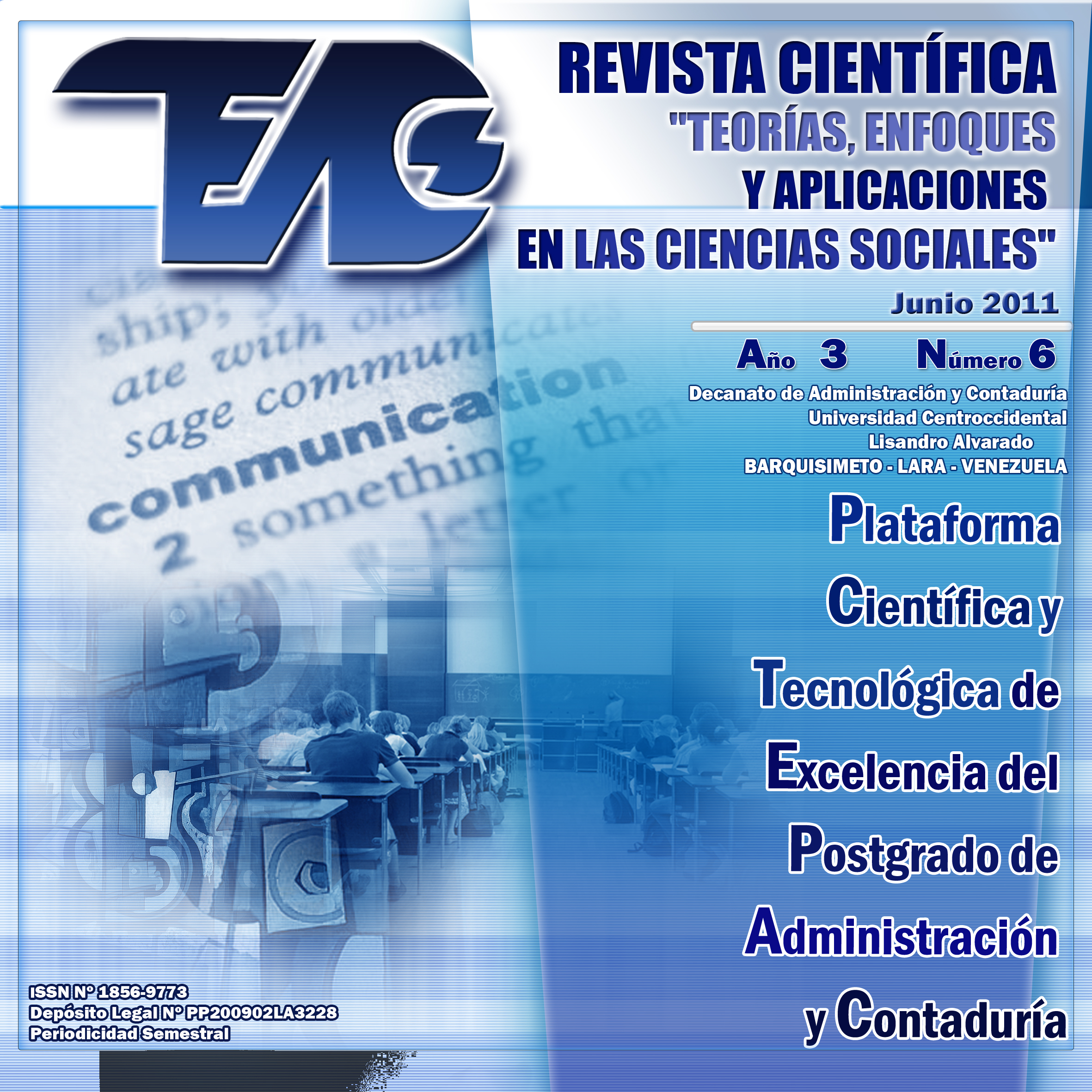Intellectual capital and IAS 38: the binomial favored the valuation of the company.
Keywords:
intellectual capital, intangible asset, valuation, ias 38Abstract
Intellectual capital is the subject of discussion in academic and business space, deciding on how to capitalize on this is a matter of today, coupled with this are the International Accounting Standards as a standard option of applying accounting policies and principles to the organization search for competitiveness, as well as IAS 38 identifies the intangible assets associated with favorable as a tool for the assessment of intellectual capital. Based on the above described this article aims to provide a methodological approach that allows the assessment and registration of intellectual capital as an intangible asset in the financial statements of organizations based mainly on the International Accounting Standard No. 38, to serve this purpose is theoretical support research publications IASB regarding intangible assets and intellectual capital refers to is based on the theories of writers such as Brooking (1997), Edvinsson (1998), Edvinsson (2003). The methodology used was an empirical, descriptive, non-experimental design. The study population was addressed through a survey of CPAs members of the Disclosure Committee International Accounting Standards of the Association of Chartered Accountants of Zulia state, data collection was conducted through a standard instrument questionnaire, validated by three experts, two of the area and an area accounting methodology. Data were analyzed with simple statistics. In conclusion it was found that there is a deficiency in knowledge and management methodologies for the valuation and accounting of Intellectual Capital, at the end is a proposal that allows the articulation of the value of intellectual capital and its incorporation in the financial statements as a Intangible assets according to the weight given to each organization.
Downloads
References
Catacora Carpio, Fernando (1998). Contabilidad: La Base para las Decisiones Gerenciales McGraw - Hill Interamericana de Venezuela, Caracas
Darby, Michael R; Liu, Qiao; Zucker, Lynne G (1999) Stakes and stars: the effect of intellectual human capital on the level and variability of high - tech firms market values NBER Working Paper Series - National Bureau of Economic Research.
Gómez Rondón, F. (1995). Contabilidad del I Semestre. Edit. Fragor. Caracas
Edvinsson, Leif. (1998) Capital Intelectual. Editorial Carvajal.
Edvinsson, Alone. (2000) El Capital Intelectual. Editorial Gestión 2009.
INTERNATIONAL ACCOUNTING STANDARDAS BOARD (1998, 2004),. Norma Internacional de Contabilidad Nº 38: Activo Intangible (emitida por el IASB ()).
López, E., Martínez Pino, Mueller, G. G., Gernon, H. & Meek, G. K.(1999). Contabilidad: una perspectiva internacional
STEWARD, T.A. (1997), “La Nueva Riqueza de las Organizaciones: EL Capital Intelectual” , Granica, Buenos Aires
Published
How to Cite
Issue
Section
Derechos del/de autor/es a partir del año de publicación
Esta obra está bajo la licencia:
Creative Commons Reconocimiento-NoComercial-CompartirIgual 4.0 Internacional (CC BY-NC-SA 4.0)
Las opiniones expresadas por los autores no necesariamente reflejan la postura del editor de la publicación ni de la UCLA. Se autoriza la reproducción total o parcial de los textos aquí publicados, siempre y cuando se cite la fuente completa y la dirección electrónica de esta revista. Los autores(as) tienen el derecho de utilizar sus artículos para cualquier propósito siempre y cuando se realice sin fines de lucro. Los autores(as) pueden publicar en internet o cualquier otro medio la versión final aprobada de su trabajo, luego que esta ha sido publicada en esta revista.



